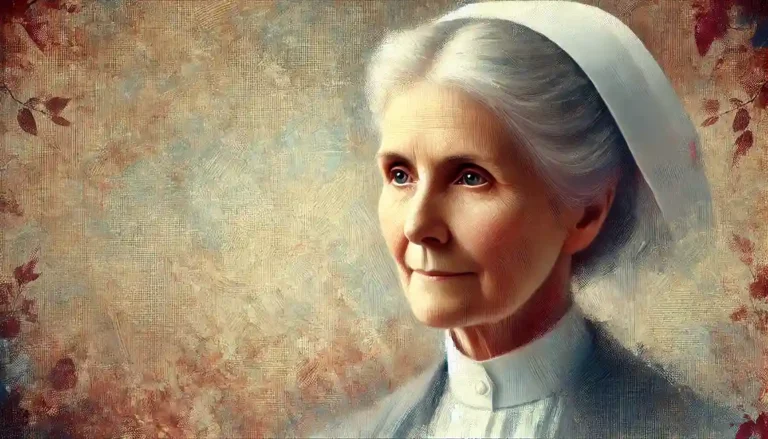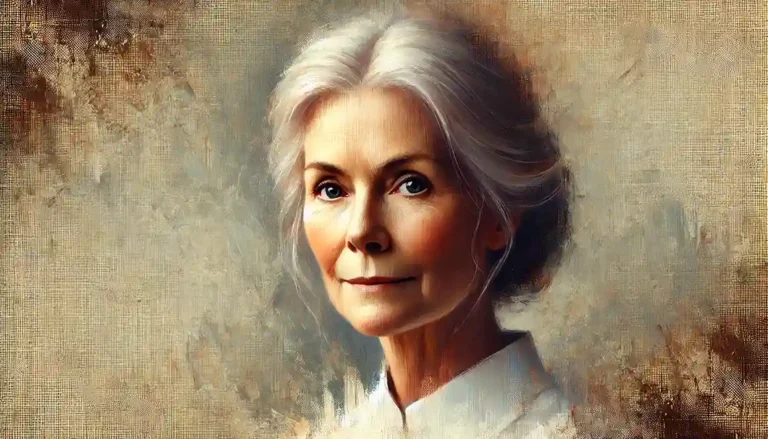Evelyn Tomlin, a prominent nurse theorist, educator, and researcher, is best known for her collaborative work in developing the Modeling and Role-Modeling Theory alongside Helen Erickson and Mary Anne Swain.
This groundbreaking theory emphasizes understanding the patient’s perspective, fostering individualized nursing care, and promoting holistic healing.
Tomlin’s contributions have significantly influenced nursing education, psychosocial patient care, and patient-centered interventions.
In this article, we cover Evelyn Tomlin’s life, achievements, philosophy, and lasting impact on modern nursing.
Quick Summary of Evelyn Tomlin’s bio
- Co-developed the Modeling and Role-Modeling Theory, which focuses on understanding patients’ unique perspectives and tailoring nursing care accordingly.
- Advocated for holistic nursing, emphasizing psychological, emotional, and spiritual well-being.
- Collaborated with Helen Erickson and Mary Anne Swain to advance nursing theory and patient-centered care.
- Published influential works that shaped nursing education, patient interaction frameworks, and clinical interventions.
- Recognized for her contributions to nursing research, knowledge development, and the science of individualized care.
Early Life and Background of Evelyn Tomlin
Birth and Family Background of Evelyn Tomlin
- Evelyn Tomlin was born in the United States and raised in an environment that encouraged learning, compassion, and service to others.
- Her early interest in behavioral science, psychology, and holistic health shaped her future contributions to nursing theory.
Education and Early Influences in Tomlin’s Life
- Tomlin earned a Bachelor of Science in Nursing (BSN), a Master’s degree, and a Ph.D. in Nursing Science.
- She was influenced by humanistic psychology, patient-centered care models, and interdisciplinary healthcare approaches.
- Inspired by the need for a theory that considers patients’ psychological and developmental needs, she collaborated with Helen Erickson and Mary Anne Swain to create a nursing model that promotes individualized healing.
Evelyn Tomlin’s Philosophy and Vision for Nursing
- Tomlin believed that nursing should be patient-focused, integrating psychological and emotional factors in care.
- Her vision emphasized helping nurses understand and respond to patients’ unique needs through empathy and self-awareness.
- Famous quote: “True healing begins when nurses understand the patient’s world and empower them to take charge of their health.”
Evelyn Tomlin’s Education and Early Nursing Career
Formal Education and Nursing Training of Evelyn Tomlin
- Tomlin’s academic training combined nursing, psychology, and behavioral science, providing her with a strong foundation in patient-centered care.
- She focused on enhancing nurses’ abilities to form meaningful therapeutic relationships with patients.
Early Professional Experiences in Tomlin’s Career
- Tomlin worked as a clinical nurse, educator, and researcher, specializing in psychosocial health and holistic nursing.
- Her experiences reinforced the need for a theoretical model that integrates psychology with traditional nursing care.
Key Achievements and Contributions of Evelyn Tomlin
Development of the Modeling and Role-Modeling Theory
- The Modeling and Role-Modeling Theory, co-developed with Helen Erickson and Mary Anne Swain, is based on:
- Modeling – Understanding the patient’s perspective and personal experiences.
- Role-Modeling – Supporting and guiding the patient in their healing process.
- Holistic Nursing – Addressing physical, emotional, and spiritual needs.
- Adaptive Potential – Assessing how patients cope with illness and promoting self-care strategies.
- The model is widely applied in nursing education, mental health interventions, and holistic care.
Evelyn Tomlin’s Contributions to Nursing Education and Curriculum Development
- Tomlin’s work has been integrated into nursing curricula, shaping how nurses assess and respond to patients’ psychosocial needs.
- She developed educational strategies that emphasize self-awareness, empathy, and individualized patient care.
Research and Theoretical Advancements
- Tomlin’s research focused on patient-nurse interactions, self-care, and holistic nursing practices.
- Her studies demonstrated the significance of understanding patients’ inner experiences to promote better health outcomes.
Evelyn Tomlin’s Global Impact and Recognition
- The Modeling and Role-Modeling Theory has been adopted internationally in nursing education, clinical practice, and holistic healthcare settings.
- Tomlin has received recognition for her contributions to nursing research, psychosocial health, and individualized care models.
Overview of Evelyn Tomlin’s Modeling and Role-Modeling Contributions
- The theory provides a framework for understanding and responding to patients’ individual needs.
- By focusing on psychosocial and developmental factors, it enhances therapeutic communication and nurse-patient relationships.
Notable Publications by Evelyn Tomlin
- Modeling and Role-Modeling: A Theory and Paradigm for Nursing – A foundational text co-authored with Helen Erickson and Mary Anne Swain, which explores patient-centered care and psychosocial nursing models.
- The Role of Empathy in Nursing – A publication discussing the impact of empathy and self-awareness in clinical practice.
- Numerous articles on psychosocial health, patient empowerment, and holistic nursing.
Challenges and Criticisms of Evelyn Tomlin’s Work
Challenges in Applying the Model in High-Demand Clinical Settings
- Some critics argue that individualized care can be difficult to implement in fast-paced hospital environments.
- Tomlin emphasized that small, intentional interactions can make a meaningful impact on patient well-being.
Criticism of the Model’s Subjectivity
- Some scholars believe that the emphasis on empathy and perception makes it challenging to quantify outcomes.
- However, Tomlin argued that qualitative measures are equally valuable in assessing patient satisfaction and healing.
Timeline of Major Milestones in Evelyn Tomlin’s Life
- 1940s: Born in the United States.
- 1960s: Completed nursing education and began clinical practice.
- 1980s: Co-developed the Modeling and Role-Modeling Theory with Helen Erickson and Mary Anne Swain.
- 1990s-Present: Published research on holistic nursing, patient-centered care, and psychosocial health.
- Present: Continues to influence nursing education, research, and patient advocacy.
Legacy and Lasting Impact of Evelyn Tomlin
Evelyn Tomlin’s Impact on Nursing Practice and Holistic Care
- Tomlin’s model has transformed how nurses approach therapeutic relationships and patient empowerment.
Evelyn Tomlin’s Global Influence
- Her work is widely used in nursing education, holistic health, and self-care training.
- She has been honored for her contributions to nursing theory, individualized care, and patient advocacy.
Conclusion
Evelyn Tomlin’s Modeling and Role-Modeling Theory has revolutionized nursing by integrating holistic healing, self-care, and individualized patient support.
Her work continues to shape nursing education, patient-centered care, and holistic healing practices worldwide.



